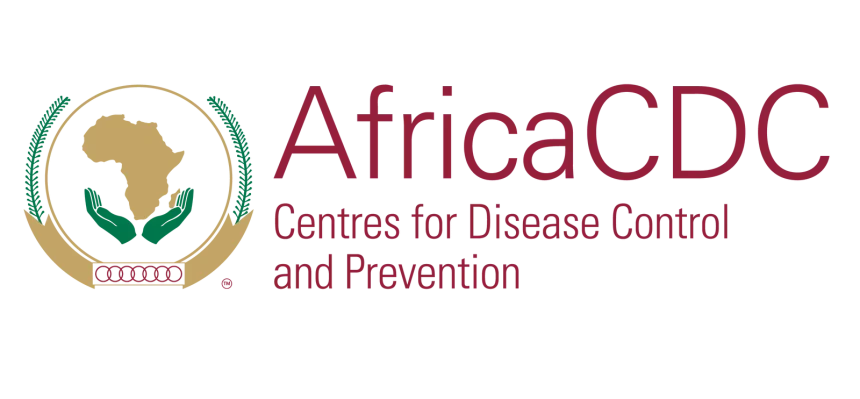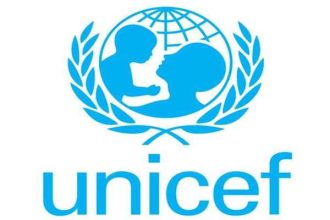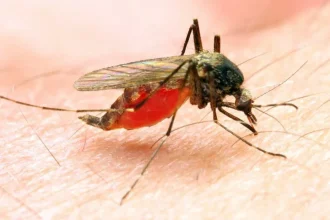One year after the World Health Organization declared mpox a Public Health Emergency of International Concern, Africa has achieved significant progress in controlling the disease through coordinated continental efforts.
However, this success comes alongside a rapidly spreading cholera outbreak affecting 23 African Union member states, driven by humanitarian crises, flooding, poor sanitation, and cross-border transmission.
Director-General of the Africa Centres for Disease Control and Prevention, Dr. Jean Kaseya, highlighted these developments during the agency’s bi-weekly media briefing on Friday.
He credited strengthened surveillance, expanded testing, vaccination campaigns, and improved patient care for reducing mpox cases.
“From Jan. 1 to Aug. 13, 2025, the continent recorded 97,144 suspected mpox cases, 29,849 confirmed cases, and 593 deaths across 24 AU member states,” Kaseya reported.
Over the past year, 28 African countries reported more than 174,000 suspected cases, nearly 50,000 confirmed cases, and about 240 deaths.
Key achievements include mobilizing over 6 million vaccine doses, with 951,000 administered and nearly 900,000 people receiving at least one dose. Thirteen of 22 affected countries now have vaccine deployment plans, with eight vaccinating high-risk groups.
Diagnostic capacity has expanded dramatically, from two laboratories in the Democratic Republic of Congo in January 2024 to 69 by August 2025, and from one to 56 in Burundi.
More than 4,000 mpox genomic sequences have been generated from 21 countries, and over 10,000 community health workers have been trained.
Kaseya noted significant declines in mpox cases, with a 34.5 per cent drop in confirmed cases over the past six weeks. While DRC, Sierra Leone, Uganda, and Burundi accounted for over 80% of 2025’s cases, their numbers have substantially decreased.
Countries like Côte d’Ivoire have controlled outbreaks, recording 42 consecutive days without new cases, while Angola, Gabon, Mauritius, and Zimbabwe have gone over 90 days without confirmed cases.
Despite this progress, Kaseya warned of cholera’s rapid spread, with 220,242 cases and 4,620 deaths recorded between January and August 2025—a 2.1% case fatality rate. The DRC reported 44,173 cases and 1,277 deaths, exacerbated by Goma’s failing water system affecting 70% of health zones. Angola recorded 27,728 cases and 776 deaths, deploying over 1.2 million oral cholera vaccine doses. Congo and Chad also reported outbreaks, with Chad’s cases concentrated in refugee camps housing nearly 94,000 Sudanese arrivals since April.
To address cholera, Africa CDC will soon launch a Continental Cholera Preparedness and Response Plan to coordinate cross-border interventions and mobilize resources. Kaseya noted that the first continental mpox plan raised $1.1 billion, with $977 million tracked, but the second phase faces a $224 million funding gap despite $196 million remaining from the initial phase.
The Africa CDC Emergency Coordination Group will soon decide whether to lift the mpox Public Health Emergency of Continental Scope. “Sustained vigilance is essential,” Kaseya stressed. “Even as we push toward zero mpox cases, the cholera threat is growing. Both demand urgent, coordinated action.”
WHO Africa’s Programme Area Manager for Emergency Response, Dr. Patrick Otim, emphasized maintaining effective strategies like rapid case detection, targeted vaccination, and community engagement.
Africa CDC’s Deputy Continental Incident Manager, Prof. Yap Boum, highlighted the need for efficiency amid limited resources: “Working as one team, with one plan, one budget, and one monitoring framework is how we win.”
Challenges remain, including vaccine access gaps, competing health emergencies, funding shortages, stigma, and conflict in eastern DRC disrupting operations. WHO and Africa CDC plan to expand community-based surveillance in high-risk areas, integrate mpox response into broader health programs, sustain targeted vaccination, and advocate for more vaccine funding.







